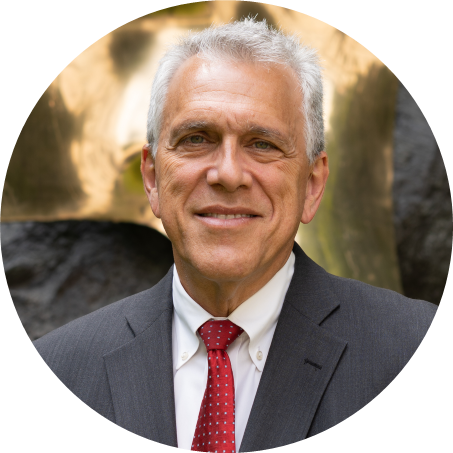The Weill Cornell Medicine Department of Otolaryngology – Head & Neck Surgery provides comprehensive ENT clinical care to thousands of patients, in addition to conducting progressive research and educating the next generation of ENT specialists, including international physicians via the Open Medical Institute. The Salzburg Weill Cornell Seminar in Otology and Temporal Bone Surgery is unique because it is an amalgam of an intensive lecture experience and an outstanding surgical laboratory experience. The lectures provide a foundation of the complex anatomy of the temporal bone and builds by including lectures on surgical techniques covering a wide breadth of the field, including tympanoplasty, mastoidectomy, stapedectomy, labyrinthectomy, and skull base surgical approaches to cerebellopontine angle tumors. The laboratory experience allows fellows to then implement their newly gained knowledge of surgical techniques under the personal guidance of world renowned otologic surgeons serving on the seminar faculty.
An impressive number of 39 fellows, from 29 different countries, joined the nineth annual Seminar in Otology and Temporal Bone Surgery in Salzburg. Dr. Samuel H. Selesnick, Professor and Vice Chairman of the Department of Otolaryngology and Professor of Otolaryngology in Neurological Surgery at Weill Cornell Medicine, served as the course director, marking his 18th participation in an OMI seminar. Dr. Gerhard Rasp, Professor, Chairman, and Head of the Department of Otolaryngology at the Paracelsus Private Medical University in Salzburg, was the co-course director for the week, commemorating his 25th OMI seminar. Additional expert faculty from the USA and Austria included Dr. Christoph Arnoldner, Dr. Tiffany P. Hwa, Dr. Lawrence R. Lustig, Dr. Cem Meco, and Dr. Sebastian Roesch. We are especially honored to have Dr. Robert K. Jackler here with us as a faculty member this week. Dr. Jackler is Sewall Professor and Chair of the Department of Otolaryngology-Head & Neck Surgery at Stanford University School of Medicine, and under his leadership the faculty grew from six to over 50 and is currently ranked #1 in the US. Dr. Jackler is also world renowned for his book publication Atlas of Neurotology & Skull Base Surgery (1996, 2008).

Samuel H. Selesnick, MD
OMI Course Director
The Salzburg Weill Cornell Seminar in Otology and Temporal Bone Surgery is unique because it is an amalgam of an intensive lecture experience and an outstanding surgical laboratory experience. The lectures provide a foundation of the complex anatomy of the temporal bone and builds by including lectures on surgical techniques covering a wide breadth of the field, including tympanoplasty, mastoidectomy, stapedectomy, labyrinthectomy, and skull base surgical approaches to cerebellopontine angle tumors. The laboratory experience allows fellows to then implement their newly gained knowledge of surgical techniques under the personal guidance of world renowned otologic surgeons serving on the seminar faculty.
- 39 fellows
- 29 countries
- 3 temporal bone laboratory trainings at PMU Salzburg
The faculty members have worked together many times over the years, and this week’s schedule was no less impressive, including 15 lectures that covered topics such as Temporal Bone Anatomy, Endoscopes in Otology, Otosclerosis, Cochlear Implantation, Vestibular Surgery, Temporal Bone Trauma, and more. Education went beyond the classroom, as fellows were ecstatic to be able to practice their surgical skills alongside international experts in a wet lab on Wednesday and Friday at the Paracelsus Medical University in Salzburg. Faculty led specific surgical techniques and were present to be able to individually address any doubts the fellows had. Dr. Selesnick states that “the laboratory experience is of tremendous value to the Otology and Temporal Bone Surgery fellows, serving as a bridge between the lectures to direct patient care. Temporal bone surgery is unusual, especially cadaver-based dissection, so this gives the fellows a chance to directly discover the complex anatomy of the region. Participants perform varied procedures including mastoidectomy, stapedectomy, and cochlear implantation”. We would like to thank the MED-EL, Karl Storz, and Medtronic vendors who ensured a smooth set-up and operation during the wet lab.
Thursday was dedicated to fellows’ case presentations, which was an excellent chance for cases from around the world to be discussed, providing fellows with valuable insight and tips on how to move forward. The course directors selected seven presentations to be published on the OMI’s e-learning platform as excellent cases. Additionally, two fellows were presented with certificates of excellent surgical skills based on their performances in the wet lab.
What a full week! Lectures, case presentations, wet labs, and networking. Fellows and faculty were surely excited to celebrate all they accomplished this week. During the Friday evening graduation dinner and ceremony, fellows and faculty continued to engage, share their experiences and memories of the week, and discuss how they will be able to move forward in their careers.















